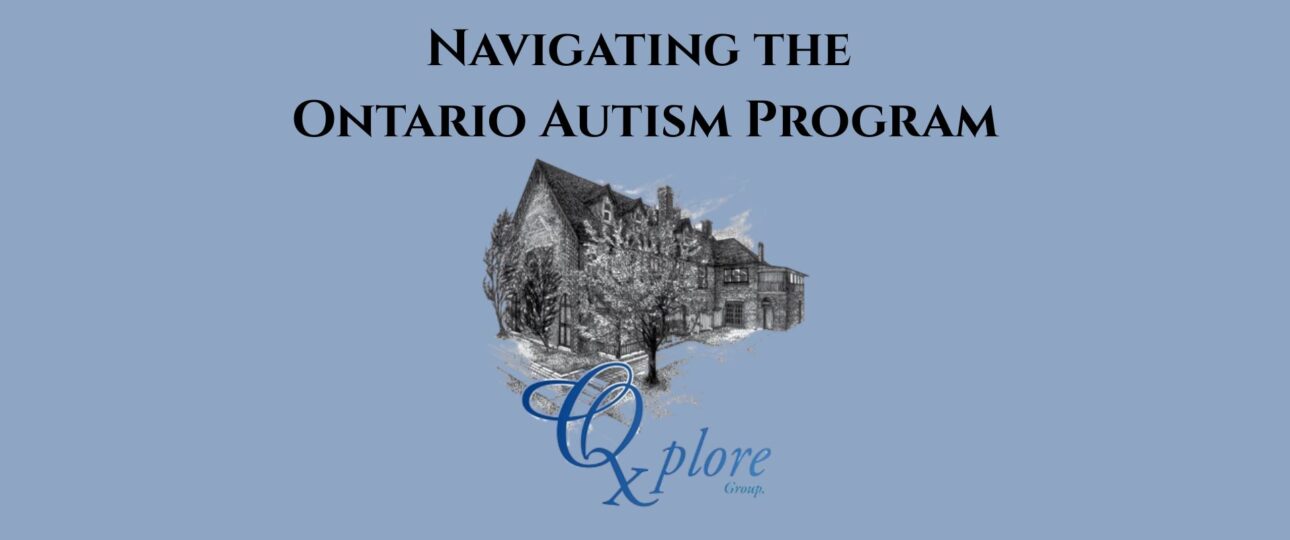The Bigger Picture: Support Across Ontario
The Ontario Autism Program is guided by the core belief that support must match the individual needs of each child or youth, rather than applying a standardized funding model. Services in the Ontario Autism Program are designed to be tailored to each child and family, focusing on what’s most important for their development and day-to-day well-being. The program is designed to foster positive mental health outcomes in children and their families through long-term growth, and the involvement of active participation for the child in the home, school, and the general community.
Implementing strategic investments in rural and underserved areas, including policies supporting travel reimbursement and telehealth infrastructure, helps ensure that geography doesn’t prevent children from accessing the care they need. Services should be culturally appropriate and flexible to accommodate marginalized communities, including Indigenous, Francophone, and newcomer families.
The inclusion of mental health services within Core Clinical Services reflects the acknowledgment that co-occurring disorders are common and require integrated approaches.
Understanding the Ontario Autism Program
Children with autism spectrum disorder (ASD) and their families in Ontario face the challenge of navigating changing support structures and understanding how they are designed to meet each child’s developmental, educational, and emotional needs. The Ontario Autism Program (OAP) offers a wide range of services to children and youth under the age of 18 who have been formally diagnosed with ASD and are currently living in Ontario.
The program operates on a needs basis, which means that services and funding are not fixed, and are instead tailored based on clinical assessments and individual developmental profiles. The goal of services is to empower caregivers to access the most suitable support possible. At the heart of this system is AccessOAP, a centralized intake and navigation hub that streamlines registration, funding, and service coordination.
To achieve this, the OAP integrates a care coordinator into each family’s journey, acting as a liaison between families and clinical providers. This coordinator helps manage an individualized plan of care, identify community-based resources, and ensure that families access all funding sources available beyond the OAP – such as the Special Services at Home (SSAH) program and Assistive Devices Program.
Key Service Streams in the Ontario Autism Program
- Foundational Family Services – Educational sessions, coaching, and group-based supports designed to help caregivers to support their child. They are accessible at any time and free of charge.
- Caregiver-Mediated Early Years Programs – For children aged 12–48 months, these programs provide parent-focused therapeutic coaching to promote early development.
- Entry to School Program – Designed for children ages 3–6 transitioning into kindergarten or Grade 1, this support helps prepare children socially and academically.
- Urgent Response Services – Time-limited interventions for families facing immediate, high-risk behavioural or emotional situations.
- Core Clinical Services – The most intensive services available, covering ABA therapy, speech-language pathology, occupational therapy, mental health counselling, and assistive technology. Families access these based on when they registered and the assessed needs of their child.
Applying for OAP Support
To obtain funding and/or services through OAP, one starts by first creating an account with AccessOAP, which is a care coordinator service in charge of the intake of applications and care coordination for OAP. AccessOAP provides a secure portal allowing families to register, upload necessary diagnostic documentation, outline treatment goals, monitor the progress of their application, and get one-on-one guidance from care coordinators to assist in identifying the most suitable services for their child. This process has been streamlined with the intent to increase efficiency and reduce delays in accessing care.
Understanding OAP Funding for Core Clinical Services
OAP offers ongoing, individualized funding based on the Determination of Needs process. Applications are processed in the order in which OAP applications were submitted.
As of May 2025, it appears that AccessOAP is processing OAP applications submitted in late 2020 and into 2021.
The funding of OAP is used to access core clinical services, including therapeutic and developmental supports tailored to each child’s unique needs. Funding amounts and types are determined through a Determination of Needs interview and process which takes into account a combination of the child’s age, developmental assessments, and service history.
Clinical assessments, conducted before the Determination of Needs Interview, by registered health professionals like speech-language pathologists, psychologists, and behaviour analysts, can be used by families to inform the Determination of Needs process and support specific requests for funding levels, service types, and service intensity. These assessments can assist in determining needs and recommending therapeutic interventions that will optimize outcomes.
When families’ applications are processed and if they are deemed eligible for funding, they will be notified through AccessOAP, where they will receive information regarding their specific budget. Generally, this budget will be valid for one year and then reviewed on an annual basis The funding for Core Clinical Services is provided directly to the family which then uses that funding to purchase services from qualified registered health services professionals, such as Quinte Assessment & Treatment Group.
References:
AccessOAP. (2022, October 12). Home – AccessOAP. AccessOAP – a Better Way to Connect With Autism Services and Supports Across Ontario. https://accessoap.ca/faqs/
Government of Ontario. (2024). Ontario Autism Program: guidelines for core clinical services and supports. ontario.ca. https://www.ontario.ca/page/ontario-autism-program-guidelines-core-clinical-services-and-supports
Government of Ontario. (2019). The Ontario Autism Program Advisory Panel Report. https://www.children.gov.on.ca/htdocs/English/documents/specialneeds/autism/AutismAdvisoryPanelReport_2019.pdf

